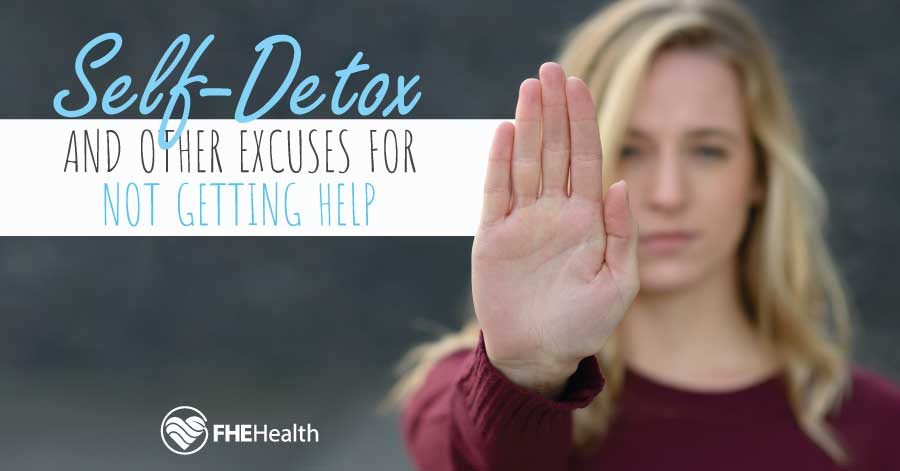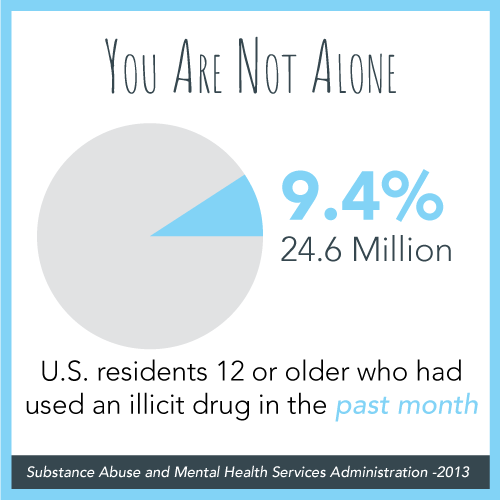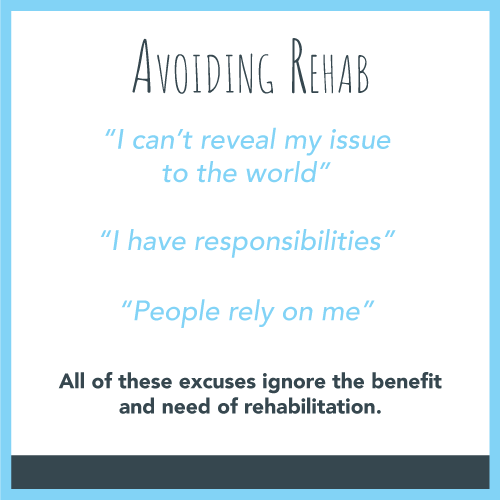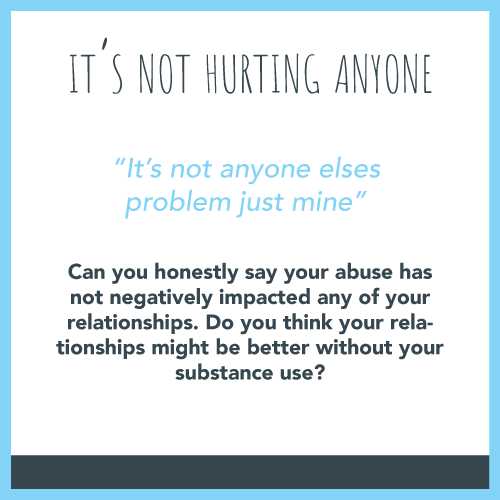
“I don’t have an addiction.” It’s something people say to family and friends all of the time. Then they ask themselves, “Am I an addict?” Secretly, you may question whether you do, in fact, have an addiction. If you’re asking these questions, you may be lying to yourself.
Many men and women find it difficult to commit to the life change necessary to obtain addiction and mental health treatment. It’s downright painful to step away from drug and alcohol use when you think you can control it. But self-detox isn’t a true option.
It’s very easy to make excuses for ourselves. It’s not so bad. You know what you’re doing. You’re taking care of it in your own way. You’ll turn to addiction recovery later if things get worse. And, you go on with your day, knowing in the back of your mind that addiction is present and robbing you of your future.
Addiction is full of excuses. Men and women often find themselves unable to commit to rehab or even to admit they have an addiction because of one or more of these excuses. But these excuses could be limiting your ability to get the help you need.
Self-Detox – A Dangerous Lie You’re Telling Yourself
 You are not alone in your addiction. The National Survey on Drug Use and Health, by the Substance Abuse and Mental Health Services Administration, was last released in 2013. This report found that 24.6 million people in the U.S. age 12 or older, or 9.4 percent, had used an illicit drug in the previous month. In other words, you are not alone in your battle.
You are not alone in your addiction. The National Survey on Drug Use and Health, by the Substance Abuse and Mental Health Services Administration, was last released in 2013. This report found that 24.6 million people in the U.S. age 12 or older, or 9.4 percent, had used an illicit drug in the previous month. In other words, you are not alone in your battle.
Considering this, you may wonder why so many people think they can self-detox. “I can stop any time I want” is a very common mentality here.
This is a type of excuse. It’s a way of not dealing with what is truly impacting your quality of life and shaving years off it. While you may think you have another day or plenty of time to worry about it later, it’s simply not likely to be a success.
The other concern with self-detox is the risk it presents. If you try to stop taking drugs on your own without medical supervision, the first risk comes in severe, life-threatening withdrawal symptoms. Some drug detoxes can cause seizures or lead to heart attacks or the loss of consciousness. Second, trying to detox on your own, without the counseling support present, leaves you highly vulnerable to relapse.
“I Can Control It” — You’re Underestimating the Problem
You believe you have the ability to stop using drugs and alcohol, but that is overestimating the amount of control you have over the problem. Specifically, drug and alcohol addiction creates a chemical dependency in the body and makes it impossible to simply stop using on your own.
A key component of your treatment, then, is to come to understand this. Once you realize and accept that the problem is present and controlling you, you realize you need help. It’s important to see just how powerless everyone is when it comes to addiction.
Rehab Just Isn’t Feasible
 There are dozens of excuses that fall in line here. You can’t miss work. You can’t tell the world that you have an addiction. You have no one to take care of the kids. The list goes on. This excuse occurs when people don’t see rehab as a possibility for any reason.
There are dozens of excuses that fall in line here. You can’t miss work. You can’t tell the world that you have an addiction. You have no one to take care of the kids. The list goes on. This excuse occurs when people don’t see rehab as a possibility for any reason.
Costs may seem like a problem, but health insurance may cover the care you need. Missing work may seem like a way to lose your job, but many employers will give you family medical leave to take care of your health. Many prefer this over having to manage your illness. Even though you think you’re hiding your addiction well and no one knows about it, chances are good some people know there’s something different. Most people will know addiction is present.
I Need These Substances Just to Cope
It’s a powerful thought to have — being reliant on a substance just to get through the day. But your situation isn’t likely as unique as you think. Many men and women go through horrible emotional and physical pain. They battle past experiences and future expectations. Some feel so much pain that getting out of bed feels impossible.
There are ways to cope with every one of these situations. Those methods do not involve the overuse of medications or drugs. You don’t have to rely on substance abuse and manage the devastating effects it brings into your life just to gain some peace. When you enter rehab, you will learn what the best options are for you. This allows you to lead a more fulfilling life, one you’ll be happy you fought to have.
It’s Not Hurting Anyone
 Who cares if you’re suffering? It’s your problem, and not one anyone else has to manage. Ask your family and friends if they think so. Find out if they think you’ve changed over the last few months or years. More often than not, your friends and family notice. Yet they’re afraid to bring it up to you because they don’t want you to be angry with them.
Who cares if you’re suffering? It’s your problem, and not one anyone else has to manage. Ask your family and friends if they think so. Find out if they think you’ve changed over the last few months or years. More often than not, your friends and family notice. Yet they’re afraid to bring it up to you because they don’t want you to be angry with them.
Ask yourself a few blunt questions. Can you honestly say the time and finances you’ve spent on substances like this haven’t taken away from your family? Has your substance abuse limited your loved one’s ability to have a caring, loving person in their life? In most situations, when you’re honest with yourself, you know it has hurt relationships and limited outcomes.
I Don’t Have an Addiction
Many people search for an addiction test online, looking for a way to self-diagnose their condition. Perhaps the family has confronted them about it. You may believe you don’t have an addiction at all.
Those in this situation need to realize what’s really happening. Do you find yourself continuously seeking out drugs or alcohol to cope? Do you fail to make appointments or keep responsibilities because you need to get a fix? You may find yourself in physical pain when you don’t get a drink or a pain pill. These are clues that you are facing addiction.
What other excuses are you telling yourself? Be honest with yourself for a moment, think about the answer here. Realizing that you have a problem is the first step in getting the support you need.
Done Making Excuses?
It’s time to get help. Recognizing the need for drug and alcohol rehabilitation is upon you. Call FHE Health and speak to one of our counselors who know what you are going through. Speak to one of our dedicated, compassionate team members when you call (833) 596-3502. We’re here 24/7 and provide you with comprehensive privacy and a caring, healing atmosphere.






